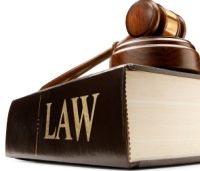

In Esso Petroleum Co Ltd v Breen, the claimant applied for a final injunction to restrain the defendants of one named individual (D1) and various unknown persons, from conducting unlawful protests against an oil pipeline construction project.
The claimant operated a network of oil pipelines. The project, which was designated as a nationally significant infrastructure project under the Planning Act 2008, aimed to construct a 100-kilometre stretch of pipeline to convey aviation fuel from the claimant's refinery in Southampton to London Heathrow Airport.
A development consent order authorised the pipeline to be laid within specified limits along a designated route. Most of the work was being done on third-party land, some of which was subject to public and private rights of way, and most of the machinery and vehicles being used were owned by contractors.
At several of the construction sites along the route, protesters:
Some were supported by protest organisations such as "Just Stop Oil".
The claimant did not have a sufficient degree of ownership, control or possession of the land, machinery and vehicles, to bring a claim in nuisance or trespass. It, therefore, brought a claim alleging conspiracy to injure its business by unlawful means.
In August 2022, the court granted an interim injunction preventing the defendants from undertaking various acts of protest, including:
The protesters' activities did not abate, and D1 was committed to prison in September 2022 for breaching that injunction.
The claimant submitted that a final injunction was necessary because the pipeline was clearly the target of unlawful protests, and Just Stop Oil had announced that it would continue its campaign of civil disobedience. It asked for a final injunction until 31 December 2023, when it anticipated that the construction work would be complete.
It was held that the claimant was entitled to a final injunction. Given the complexities of the possession and ownership of the land, it was clear why it had framed its case in terms of conspiracy to injure by unlawful means, and it was also clear that it had made out its case.
The pipeline had attracted a co-ordinated campaign of protest intended to harm the claimant economically, and impede its ability to complete the construction work. The claimant's ability to rely on unlawful means conspiracy was not impaired by the fact that some of the acts done pursuant to the conspiracy, such as damage to items owned by contractors, was not directly actionable by it.
With regards to the unknown persons, there had been effective service, the claimant having taken all practicable steps to notify the defendants of the proceedings, the order was clearly outlined both geographically and temporally, and its terms were clear.
Finally, any interference with the protesters' Article 10 (freedom of expression) and 11 (freedom of assembly and association) of the European Convention on Human Rights was justified. Deliberately obstructing traffic or seriously disrupting the activities of others was not at the core of the rights guaranteed by Articles 10 and 11. Nor did those rights include an ancillary right to trespass, damage private property, or injure others.
The pipeline was a major piece of engineering infrastructure that would serve the UK for many years, and disruption would potentially affect UK trade, and the transportation of people and goods. The injunction aimed to restrict the protesters' activities so as to allow the claimant to conduct its lawful business, permit Heathrow Airport to operate, and prevent harm to others. That aim was sufficiently important to justify interference with the protester's Articles 10 and 11 rights.
It also had a rational connection to the means by which it would be pursued. The injunction allowed the claimant to fulfil its contractual obligations and its terms prohibited activity that would amount to the conspiracy alleged. There was no less restrictive way of proceeding, and the injunction struck a fair balance between the rights of the protesters and those of the claimant, the contractors and the public.
Importantly, it did not prohibit protesters from entering the area delineated by the development consent order, but merely controlled what they did within it.
"The proposed order demonstrates a careful and moderate striking of the balance, which preserves the right to lawful protest".
Application for a final injunction granted.